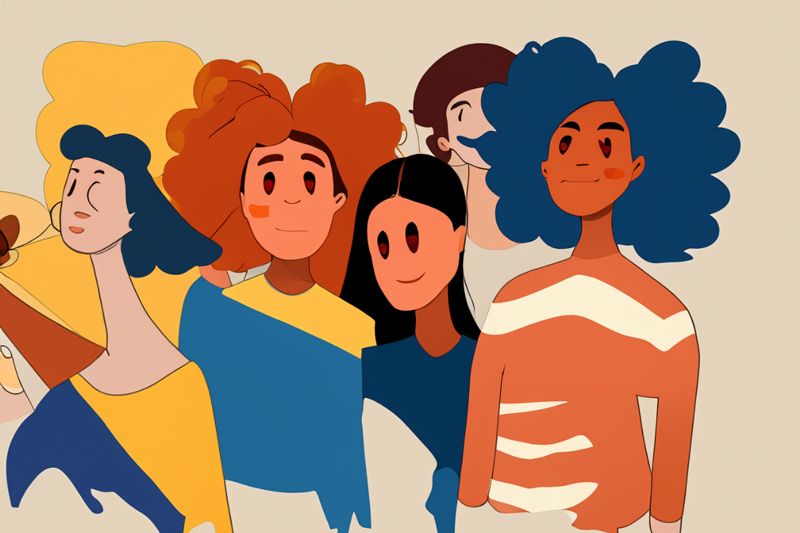Healing Anti-Asian Racism – The HOPE Framework
In a media briefing on May 31, hosted by Ethnic Media Services, experts discuss innovative solutions to combatting anti-Asian hate. A new initiative led by AAPI Equity Alliance is establishing culturally centered, community-based groups to serve as healing spaces for five specific Asian American communities—Cambodian, Chinese, Filipino, Japanese, and Korean—as they navigate experiences with racism and the surge in hate crimes.
Taking inspiration from the “Radical Healing Framework” developed by Black Liberation psychologists to address the impact of racial trauma on African Americans, the pilot program, known as Healing Our People Through Engagement (HOPE), aims to leverage the cultural strengths and traditions of these communities to foster a shared understanding and collective response to persistent racism.
Speakers

- Michelle Sewrathan Wong, Managing Director of Programs, AAPI Equity Alliance
- Anne Saw,D, Associate Professor of Psychology at DePaul University and past Vice President of Asian American Psychological Association
- Xueyou Wang, HOPE Program Facilitator, Social Services Program Assistant at Little Tokyo Service Center
- Yu Wang,HOPE Program Facilitator, Associate Marriage and Family Therapist at Asian Pacific Counseling and Treatment Center
- Joann Won, HOPE Program facilitator, Program Facilitator at Korean Youth Community Center, graduate in Psychology from UCLA
Local businesses, workers, and the general Asian population have witnessed a rise in anti-Asian hate since the pandemic. A new pilot program is making significant strides in helping AAPI communities heal from rising racism in the Asian community. The Healing Our People Through Engagement (HOPE) program utilizes a “Radical Healing Framework” to aid the five largest Asian communities in Los Angeles County in responding to both past and ongoing racism.
Addressing Racism Through Healing
Funded by the California Department of Social Services and led by the AAPI Equity Alliance, an LA-based coalition of over 40 community-based AAPI organizations, the HOPE program was developed to tackle the mental health impacts of racism. During the pandemic, Asian Americans, who make up over 15% of California’s population, faced brutality on a scale not seen for generations, according to Michelle Sewrathan Wong, Managing Director of Programs for AAPI Equity Alliance. They were scapegoated for COVID-19 transmission, targeted for violent physical attacks, made to feel unwelcome, and bullied by neighbors and strangers alike.
The Radical Healing Framework, a key component of the HOPE program, was created to address the collective suffering caused by racism. “Our community was suffering an epidemic of isolation, anxiety, and depression,” said Wong. “Racism doesn’t just occur on an individual level, and healing, hoping for a different future, requires collective action.”
Dr. Anne Saw, Associate Professor of Psychology at DePaul University and one of the designers of the HOPE program, noted that decades of research show racism can harm both physical and mental health, leading to symptoms like depression, anxiety, PTSD, headaches, trouble sleeping, hypervigilance, and social withdrawal. The Radical Healing Framework emphasizes healing rather than simply coping, helping communities see how their experiences connect to historical injustices and brainstorming actions to protect their well-being.
Implementation and Community Impact
The HOPE program’s pilot phase focuses on learning what works best, with plans to expand it to any Asian American interested in participating. Facilitators from various community organizations have already observed significant positive impacts.
Xueyou Wang, HOPE facilitator and social services program assistant at the Little Tokyo Service Center, shared that weekly community action groups, consisting of participants ranging from new immigrants to fifth-generation Japanese Americans, have been addressing micro-stressors that built up during the pandemic. Participants discussed feeling like targets for attacks when wearing masks in public and the need to protect fellow Asian Americans in crowds, given the violence highlighted in the news.
Yu Wang, HOPE program facilitator and associate marriage and family therapist at the Asian Pacific Counseling and Treatment Center, described how their group helped participants, including international students and long-term residents, feel accepted and empowered to explore their identities. One participant initially expressed distrust and hopelessness but later found acceptance and a desire to understand her identity through the shared experiences of others.
Joann Won, a HOPE facilitator at the Koreatown Youth + Community Center, highlighted the transformative impact on participants who shared their fears and experiences for the first time, building a sense of community and understanding. Participants went from being strangers to forming strong bonds, underscoring the program’s success in creating a space for connection and healing.
The Future of Radical Healing
The HOPE program represents a pioneering effort to use the Radical Healing framework in a community-based setting to address the mental health impacts of racism on Asian Americans. By focusing on collective healing, the program aims to empower participants to become whole in the face of ongoing racism through community connection, cultural pride, and collective action.
As the program continues to grow, it promises to foster resilience, empowerment, and positive change within Asian-American communities. The innovative approach of the HOPE program serves as a model for how communities can come together to heal from the traumas of racism and build a more inclusive and supportive society.


